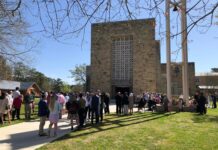People are naturally social beings, but according to the National Academies of Science, one-fourth of adults 65 and older are considered to be socially isolated. What is the difference between social isolation and loneliness? Social isolation is when a person has few contacts or connections whereas loneliness is feeling alone or separated from others even in a crowd.
Risk factors
Risk factors associated with isolation can include the following:
- Limited financial resources
- Inability to drive
- Lack of public transportation
- Living alone
- Multiple health conditions
The Centers for Disease Control and Prevention also reported that poor social relationships increased the risk of heart disease by 29%, stroke by 32% and dementia by 50%. Both social isolation and loneliness can put senior adults at a higher risk of cognitive decline, depression, obesity, premature death and hypertension as well.
What you can do
There are some things people can do to overcome social isolation or loneliness.
- Attend an Alabama Extension event. Check out calendar events to find an activity near you
- Attend virtual or in-person educational opportunities presented by the Virginia Caples Lifelong Learning Institute for older adults
- Join your local senior center
- Have lunch with friends
- Visit with your grandchildren or other family members
- Volunteer at the school, faith-based organization or community group
- Join your local YMCA or other fitness program in your community
- Public libraries and community centers also have programs for senior adults
View the eldercare locator or call 1-800-677-1116.
For more information
For more information, visit the Older Adults section of the Alabama Extension website.


















